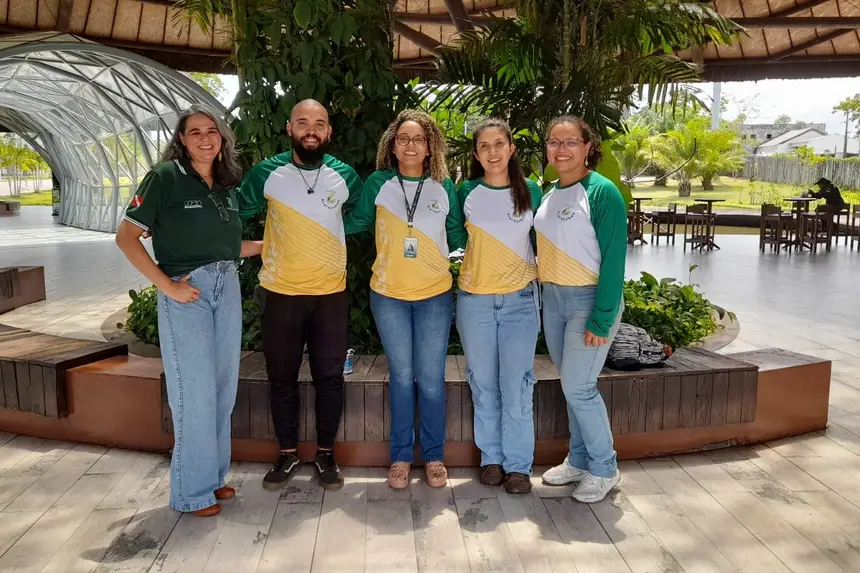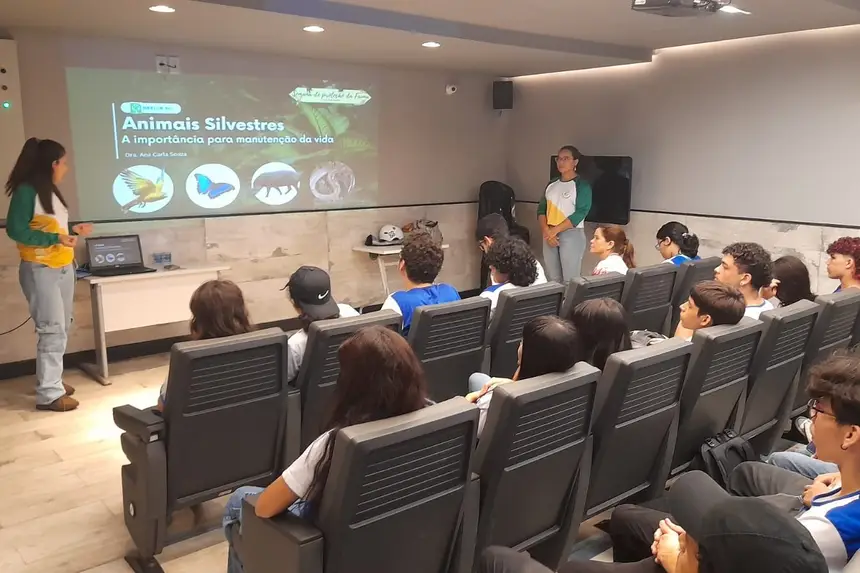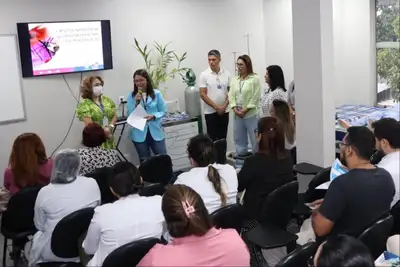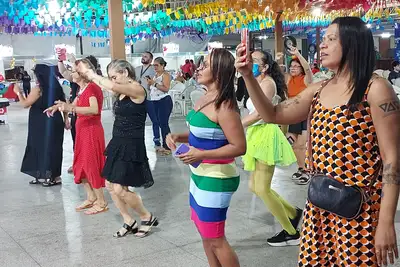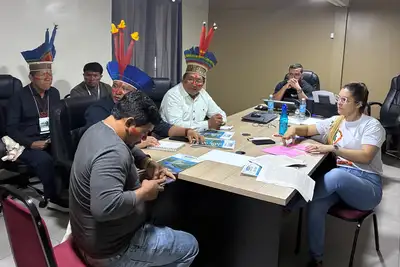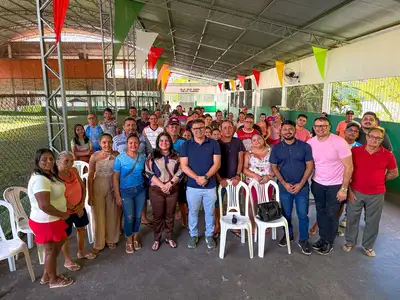Wildlife Protection Week Celebrates the Reintroduction Project of Ararajubas in the Utinga State Park
The program was opened with a lecture for students from the Visconde de Souza Franco State School
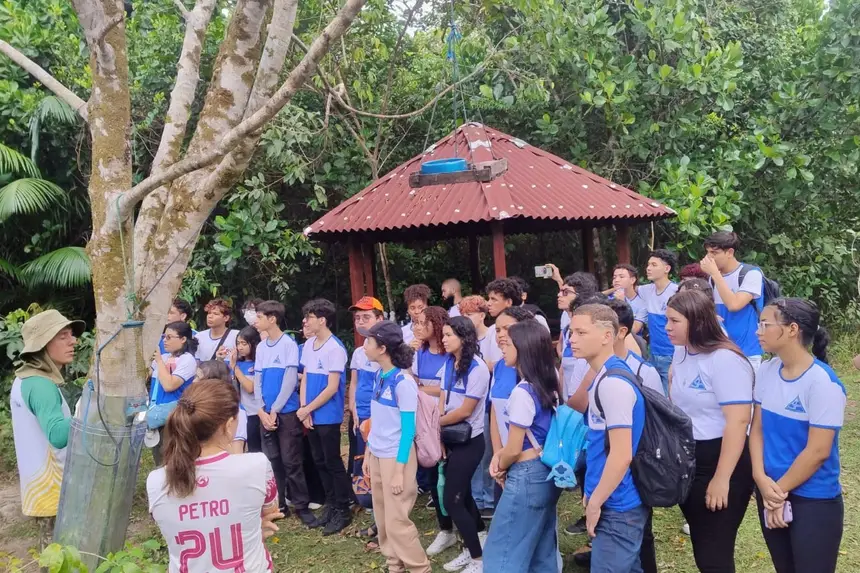
The Utinga State Park received various actions related to Wildlife Protection Week and Bird Day. The program, held on October 3 and 5, was an initiative of the Reintroduction and Monitoring Project of Ararajubas, led by the Institute for Forest Development and Biodiversity of Pará (Ideflor-Bio), in partnership with the Lymington Foundation. For eight years, the project has been operating in the park and has established itself as one of the most important conservation initiatives for Amazonian fauna.
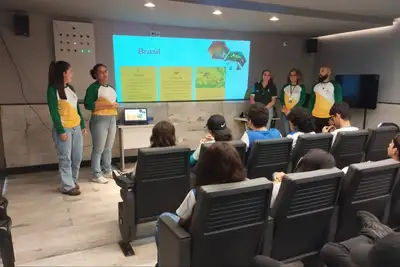
The program was opened with a lecture for students from the Visconde de Souza Franco State School. On this occasion, the environmental analyst from Ideflor-Bio, Géssica Fernandes, gave the lecture "Bees and Food: the Invisible Connection that Sustains Life," addressing the essential role of these insects in pollination and food production.
Next, fellow environmental analyst Ana Carla Souza presented the lecture "Wild Animals: the Importance for the Forest," highlighting the relationship between fauna and ecological balance. The morning concluded with an environmental education dynamic aimed at raising awareness about each citizen's role in protecting nature.
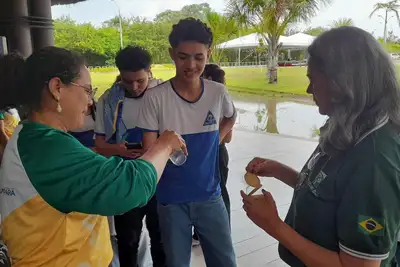
Learning - Teacher Petronila, who accompanied the group, highlighted the value of the experience for the students' education. "We brought our students here to the Utinga State Park to visit the Ararajubas Project. It was very important because they were able to experience this moment and, coincidentally, observe the birds gathered, free, which is a great victory for our environment. This experience awakens the feeling of belonging, appreciation, and recognition of our park and the Amazon," she stated.
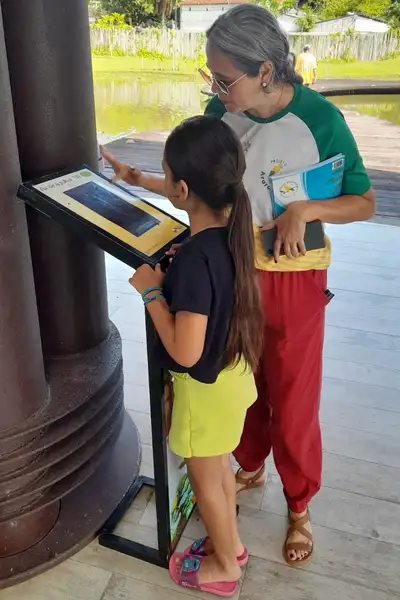
Students Manoela and Marina shared their impressions of the visit. "I really liked the fact that they are trying to repopulate the ararajubas. I think they are very beautiful, and I was emotional when I saw them for the first time. It was a very special moment," Manoela said. Marina highlighted the learning provided by the activity: "What I liked most was getting to know the birds because I didn't know they existed. Knowing that they were endangered and are being reintroduced is very important; it's a way of raising awareness about animals' right to live freely in nature," she said.
The activities continued on Sunday (5), with awareness and environmental education activities for the public that passed through the Utinga State Park. Innovation was also highlighted with the presentation of the digital totem "Ararajuba Tá On," an interactive tool that allows visitors to learn more about the fauna and flora of the Amazon in a playful and informative way.
Wildlife Rescue - The Reintroduction and Monitoring Project of Ararajubas aims to strengthen the population of the species Guaruba guarouba, endemic to the Amazon and threatened with extinction. The initiative is executed by Ideflor-Bio, in partnership with the Lymington Foundation, and is part of the set of priority actions of the Pará government aimed at biodiversity conservation. Within the Utinga State Park, the project combines science, management, and environmental education, becoming a reference in the recovery of native species.
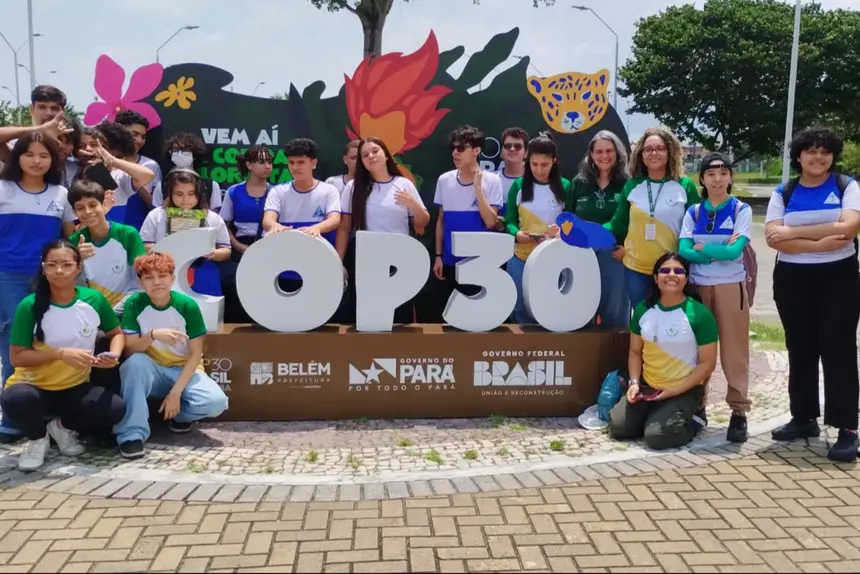
For the biodiversity manager of Ideflor-Bio, Mônica Furtado, Wildlife Protection Week reinforces the importance of integrating conservation and social awareness. "The Utinga State Park is a living space for learning and reconnection with nature. The Ararajubas Reintroduction Project symbolizes Ideflor-Bio's commitment to protecting our fauna and involving society in this process. Seeing students enchanted by the birds is a way to inspire new generations for the environmental cause," she stated.
Mônica also emphasized that the celebrations for Wildlife Protection Week and Bird Day left a message of hope and environmental responsibility. "Amidst flocks of ararajubas and smiles from students, our program reaffirmed Ideflor-Bio's role in promoting conservation and valuing wildlife, strengthening Pará's commitment to protecting the Amazon and its species," she concluded.
